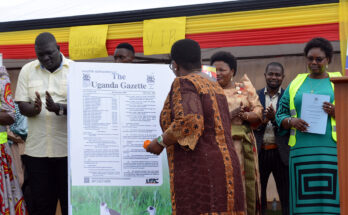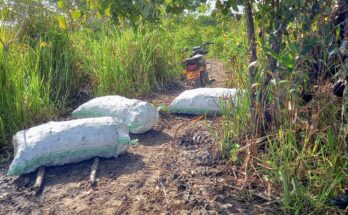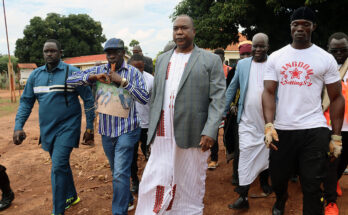Developing nations like Uganda risk being scammed for accepting carbon markets peddled by corporate companies from the global north, the Global Forest Coalition, an international alliance of environmental organisations, has cautioned, adding that the “flawed” trading system is “merely a false solution’ that is sidelining genuine efforts that can combat climate shocks.
Speaking at the COP28 in Dubai, Ms. Chithira Vijayakumar, said a huge amount of funds from the developed nations are injected into developing countries in the form of carbon markets yet they don’t give “real solutions” that can mitigate climate change impacts.
“Developing nations need to be clear that in order to have meaningful climate action they need to reject carbon markets because they are flawed and therefore limit them in terms of achieving their climate goals,’ Vijayakuma said while citing UN’s REDD+ projects, mainly supported by developed nations such as Norway, Germany and the United States, to reduce carbon emissions from activities like deforestation in the developing world.
By rejecting carbon markets and other forms of “corporate captures”, Viyakumar added, it puts developing nations in a better position to demand for better and diverse climate finance programs that promote “a gender just eco system community approach to achieve real solutions”.
“We need climate finances that enable communities to realize their self-governance and collective right to protect natural resources and those enable communities to be resilient in time of [climate] crises,” she added.

Carbon markets are trading systems where companies compensate for their greenhouse gas emissions by purchasing carbon credits from individuals or entities that remove or reduce greenhouse gas emissions. These can be tree planting, forest conservation, and renewables like solar among others.
In Uganda, for instance, the National Forestry Authority (NFA), for instance, intends to launch a “ten-year restoration program” aimed at restoring degraded forest and also earning carbon credit which can be later invested in renewable energy in future.
“We will train 2,000 forest rangers for the start,” said NFA Executive Director, Tom Obong revealed at the COP27 last year. “We realized we are losing a lot of money there”.
Obong added the initiative would also help cut carbon emissions in future especially when the East African Crude Oil Pipeline (EACOP) starts shipping crude oil.
Kwami Kpondzo, Executive Director of Centre for Environmental Justice, noted that projects such as EACOP are responsible for the displacement of the indigenous communities, destroying their livelihood and biodiversity, stating the practice is “synonymous with land gabbling”.
In most cases, he added, corporate companies also displace communities under the pretext of buying land to plant trees for carbon trading yet it only leads to “loss of people’s livelihood and women’s access to land”.
In the Albertine region, for instance, more than 1,400 people risk being displaced by TotalEnegy’s EACOP, which will ship crude oil from the Albertine region to the port of Tanga in Tanzania, which has rip-through farmlands, forests and wetlands.

In some districts like Buliisa, smallholder farmers are already battling floods due to oil activities taking place. In 2021, TotalEnergies slashed huge swathes of trees to erect a 700-acre industrial park as part of the EACOP. And since then, floods have been sweeping through people’s gardens and water sources.
“The ecological balance of the area was distorted,’ says Rogers Tusiime, the Buliisa’s District Environment Officer. “TotaEnergies didn’t have a back plan when they cut down trees. The land was left bare and there were no trees to soak up rainwater or even slow the water run-offs”.
The situation has rendered farmers like Stella Achan, a mother of two, even more vulnerable, on top of being displaced by the oil pipeline.
“Now I cannot grow anything because of the floods,” says Anichan, 33, whose source livelihood is farming. “At the moment I have to engage in casual work in people’s homes to look after my children.”
Meanwhile, in the neighbouring Hoima district, a growing movement of women environmentalists have been protesting the decision involving the leasing away of part of Bugoma forest, home to a tenth of the world’s chimpanzee and a growing eco-tourism destination, by Bunyoro kingdom to Hoima Sugar Limited for sugar cane growing.
“Women are the most affected by the effects of climate change and environmental degradation,” Beatrice Rukanyanga, an eco-feminist and coordinator of the Kwataniza Women Farmers’ Group.
“Whenever forests are cut down, it’s them to suffer because they have to move longer distances to collect firewood. If the weather is not favourable, they have to find a way of growing food to feed their children”.
This story was produced with assistance from MESHA and IDRC Eastern and Southern Africa Office for science journalists reporting on COP28.




